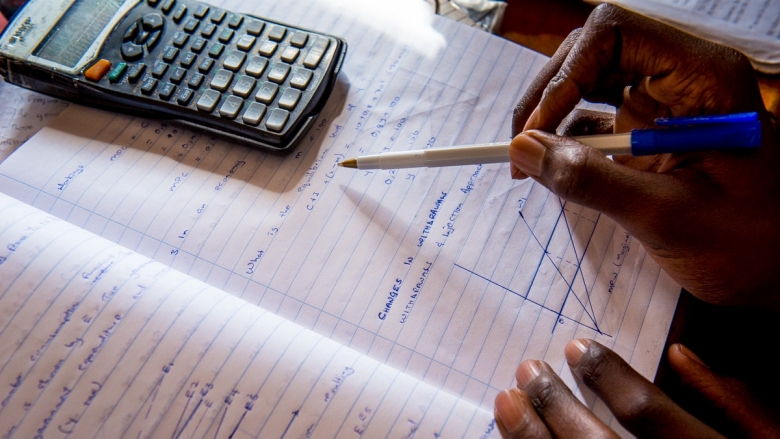HARARE, June 30, 2016 – Mention mathematics to Tatenda Chenga, and it conjures up bad feelings, as its mechanics render it a challenging subject for him.
“I find Mathematics very difficult at times and I always dread writing examinations but am hoping to improve with more practice and help from my teachers,” said the 14-year-old student.
Recent examination statistics also show that many students do not fare well in math, as the pass rate is almost always low. In 2014, 24% of the students who sat for the “O” Level Mathematics examination passed.
With support from the Zimbabwe Reconstruction Fund, the Ministry of Primary and Secondary Education has committed to changing this. Through the Education Sector Technical Assistance (TA), the ministry is in the process of revamping the curriculum and improving the mathematics teaching and learning experience.
The TA will support the government’s efforts to improve test scores and spending efficiency, strengthen capacity, and update practices in specific policy areas aimed to address gaps in education.
As a compulsory subject, mathematics has taken a center stage, and for two days in May, more than 200 participants, including teachers, provincial inspectors, Zimbabwe Schools Examination Council (ZIMSEC), book publishers and other stakeholders gathered in Harare for a Mathematics conference.
“The curriculum review seeks to position Mathematics as a vehicle to acquire 21st century skills, provoke critical thinking and develop a well-rounded learners who can effectively contribute in Zimbabwe’s development through improved numeracy skills and precision of thought,” said Dr Lazarus Dokora, Minister of Primary and Secondary Education.
The conference offered an opportunity for stakeholders to weigh in on the proposed changes to the mathematics curriculum, share experiences, lessons learned and best practices in the effective teaching and learning strategies, both in the local context and other countries. Participants also identified key competences required by teachers for effective pedagogy under the new curriculum, relevant ICT tools and media that can be used to enrich teaching under the new curriculum, and determine the need for Zimbabwe to take part in the FirstMath Survey.
The new curriculum is expected to roll out in 2017, in time to support the government’s drive to increase Science, Technology, Engineering and Mathematics (STEM) education, which has been identified as pivotal in the socio-economic development of the country.
“I am excited about the new curriculum review as it will help us tap into our student’s potential better through improving the overall classroom experience,” said Mustsavi Vengesayi, a teacher in Zaka District. “I am certain that we will be able to improve the mathematics overall pass rate as teachers when we embrace the new curriculum.” The ZIMREF project will also provide TA for the establishment of mechanisms to professionalize the teaching profession, support a teacher training program on continuous classroom assessment and Information Communication Technology (ICT) in Education, which will result in a comprehensive ICT policy framework.

